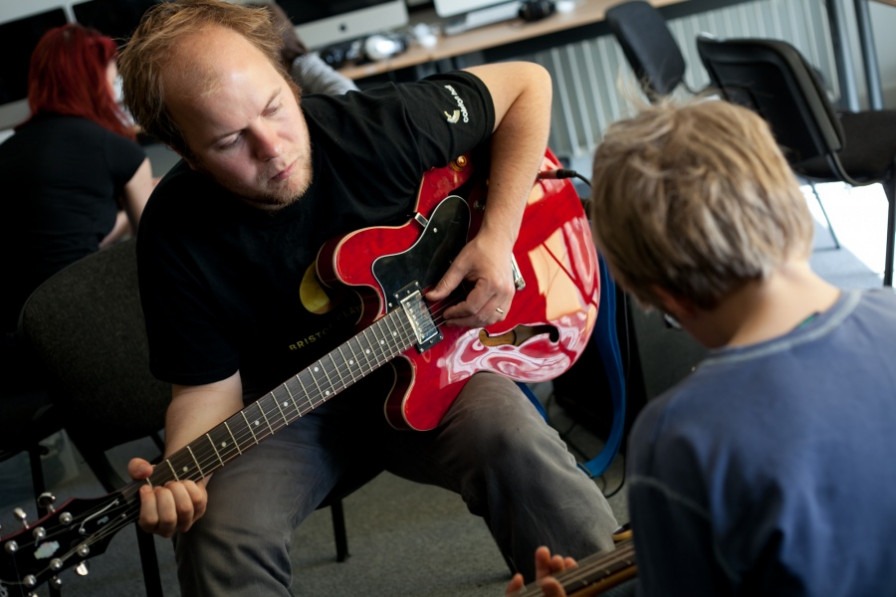Inclusive practitioner training course with Phil Mullen
Event description

This training course aims to:
- Give music practitioners a thorough understanding of inclusive music practice – The reasons behind the work and why it is especially suited to those working in community music or non-formal music education contexts.
- Provide music leaders with practical ways of developing and deepening engagement.
- Further musicians understanding of reflective practice and why it is an important tool in inclusion and to enable them to deepen their commitment to this way of working.
- Focus on issues of progression in a broad sense and encourage musicians to see beyond the session to the musical pathways of their participants.
At the end of the four days the musicians will:
- Have a range of different ways to engage children and young people in music activity.
- Be able to develop sessions where every child has an equal opportunity to learn create and progress.
- Feel more assured with reflective practice (and also reflexive or circular practice) – why it is important and how to develop it both on your own and with others.
- Understand the complexities of progression and devise ways to enable their participants to move forward in musical knowledge, musical performance and in sustaining and developing their music beyond the session.
23 Nov 2015 | 11 Jan 2016 | 25 Apr 2016 | 13 June 2016 10am-4pm each day £60
Please contact the Colston Hall box office to book: 0844 887 1500 Limited to 30 people who are committed and able to attend all four sessions. It will run at the M-Shed. Refreshments and lunch are included in the ticket price
About Phil Mullen
Community musician, trainer and music education consultant Phil Mullen has over 28 years experience in Community Music practice and has worked across the globe to further the idea that participating in music is something everyone can do regardless of age, ability or background having run projects with marginalised groups, including seniors, people with intellectual challenges, homeless people, and communities in conflict.



